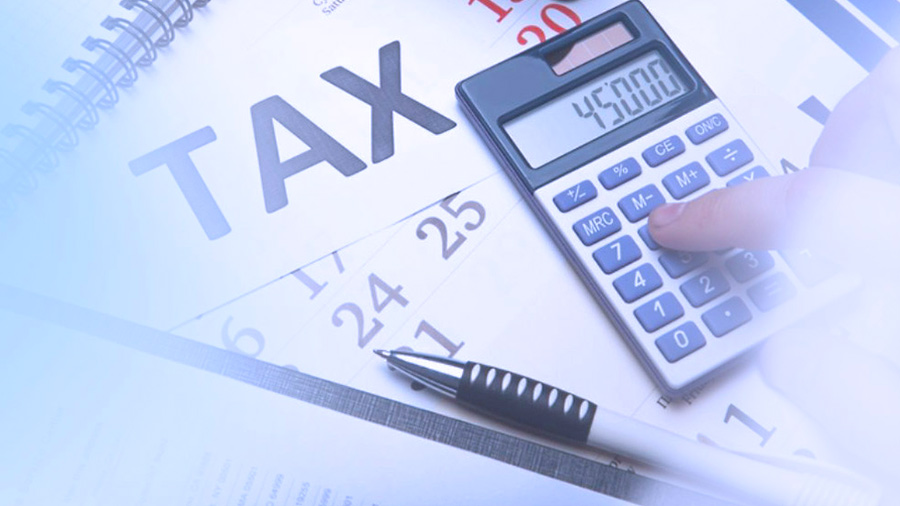Singapore's income tax system operates on a territorial basis, meaning that only income earned in Singapore or received in Singapore from abroad is taxable.
Individual income tax rates in Singapore are progressive, starting from 0 percent and peaking at 22 percent for income exceeding S$320,000 (US$237,000). The annual tax filing deadline for individuals is on April 15th, and residents can benefit from various reliefs and rebates to reduce their taxable income, such as:
- The earned income relief;
- Spouse relief; and,
- Parent relief.
IIT rates
Since 2024 onwards, Singapore will increase the headline IIT rate to 24 percent. Chargeable income between S$500,000 (US$388,581) to S$1 million (US$777,162) will be taxed at 23 percent, while chargeable income in excess of S$1 million will be taxed at 24 percent.
The tax rates on chargeable income in 2025 are as follows:
|
Chargeable Income |
Income Tax Rate (%) |
Gross Tax Payable |
|
First S$20,000 (US$15,539) |
0 |
0 |
|
Next $10,000 (US$7,771) |
2 |
S$200 (US$155) |
|
First $30,000 (US$23,309) |
- |
S$200 (US$155) |
|
Next $10,000 (US$7,771) |
3.5 |
S$350 (US$260) |
|
First $40,000 (US$31,079) |
- |
S$550 (US$427) |
|
Next $40,000 (US$31,079) |
7 |
S$2,800 (US$2,175) |
|
First $80,000 (US$62,159) |
- |
S$3,350 (US$2,602) |
|
Next $40,000 (US$31,079) |
11.5 |
S$4,600 (US$3,574) |
|
First $120,000 (US$93,239) |
- |
S$7,950 (US$6,177) |
|
Next $40,000 (US$31,079) |
15 |
S$6,000 (US$4,661) |
|
First $160,000 (US$124,319) |
- |
S$13,950 (US$10,392) |
|
Next $40,000 (US$31,079) |
18 |
S$7,200 (US$5,593) |
|
First $200,000 (US$155,377) |
- |
S$21,150 (US$16,431) |
|
Next $40,000 (US$31,079) |
19 |
S$7,600 (US$5,904) |
|
First $240,000 (US$186,453) |
- |
S$28,750 (US$22,343) |
|
Next $40,000 (US$31,079) |
19.5 |
S$7,800 (US$6,061) |
|
First $280,000 |
- |
S$36,550 (US$28,405) |
|
Next $40,000 (US$31,079) |
20 |
S$8,000 (US$6,217) |
|
First $320,000 (US$248,692) |
- |
S$44,550 (US$34,622) |
|
Next $180,000 (US$139,889) |
22 |
S$39,600 (US$30,775) |
|
First $500,000 (US$388,581) |
- |
S$84,150 (US$65,398) |
|
Next $500,000 (US$388,581) |
23 |
S$115,000 (US$89,373) |
|
First $1,000,000 (US$777,162) |
- |
S$199,150 (US$154,772) |
|
In excess of $1,000,000 (US$777,162) |
24 |
- |
Non-resident tax rates
Non-resident individuals are taxed at a flat rate of 15 percent or according to the progressive resident tax rates, whichever results in a higher tax amount.
For other types of income such as director's fees, consultation fees, and rental income, non-residents are taxed at a flat rate of 24 percent starting from YA 2024.
Below is a comprehensive table of the non-resident tax rates for the Year of Assessment (YA) 2024 onwards:
|
Type of Income |
Tax Rate |
|
Employment income |
15% or according to the progressive resident tax rates, whichever is higher |
|
Director's fees |
24% |
|
Consultation fees |
24% |
|
Rental income |
24% |
|
Income of Non-Resident Professionals |
15% of gross income or 24% of net income |
|
Income of Non-Resident Public Entertainers |
15% |
|
SRS Withdrawals by Non-Singapore SRS Account Holders |
24% |
|
Interest, Commissions, or Other Payments Related to Loans |
15% reduced rate or 24% if conditions are not met |
|
Royalties or Lump-Sum Payments for Movable Properties |
10% reduced rate or 24% if conditions are not met |
Tax residency: Resident vs. non-resident individuals
The tax liability of companies and individuals in Singapore is dependent on their tax residency status.
Singapore citizens and Singapore permanent residents are both considered tax residents. Foreigners are considered tax residents if they:
- Have stayed or worked in Singapore for (a) more than 183 days in a calendar year in the previous Year of Assessment (YA), or (b) continuously for three consecutive years; or
- Have worked in Singapore for a continuous period spanning two calendar years with a total duration of stay exceeding 183 days, including physical presence in Singapore before and after the start of work.
The IRAS classifies non-resident individuals into three distinct categories: foreign professionals, public entertainers, and board directors.
Residency for all three categories depends on whether they spend less than 183 days in a calendar year in Singapore, but they have different obligations for tax purposes.
A professional is a non-resident if they are in Singapore for less than 183 days in a calendar year. Examples of foreign professionals include foreign experts or consultants invited to Singapore to share knowledge or ability with an organization, an academic attending a seminar or workshop, or an individual operating via a foreign company.
Board directors, or company directors, are non-residents if they spend less than 183 in a calendar year in Singapore. A board director may also hold another role within a company, such as a chief executive officer or managing director, but they are only considered a board director for income derived in that role.
Filing personal income tax returns
Filing begins on March 1st to allow for the pre-filling of auto-included information in your tax return, making the process more convenient. Ensure your contact details, including your mobile number and email address, are updated in myTax Portal to receive timely notifications.
Step 1: Receiving filing notification
Between February and March, IRAS sends filing notifications via SMS, email, or letter. If you receive a notification, you can begin e-filing your tax returns from March 1st to April 18th. Most taxpayers will receive their tax bills from late April onwards.
Step 2: Determining the need to file an Income Tax Return
To decide if you need to file an income tax return for the Year of Assessment (YA) 2024, use the filing checker tool available on the IRAS website.
If you are under the No-Filing Service (NFS) and had only auto-included income in the previous year, you might be selected for the Direct Notice of Assessment initiative. In this case, you do not need to file a return, but you must ensure the accuracy of the information provided by your employer and the previous year’s relief claims.
Step 3: Using No-Filing Service (NFS)
If selected for NFS, you are not required to file an income tax return. Instead, log in to myTax Portal using your Singpass or Singpass Foreign user Account (SFA) to verify the auto-included information and preview your tax bill from March 1st to April 18th. If adjustments are needed, you can file your return through the portal.
Step 4: Declaring employment income
For employees whose employers participate in the Auto-Inclusion Scheme (AIS), employment income information is submitted directly to IRAS and pre-filled in your tax return.
If your employer is not in AIS, you must manually enter the details from Form IR8A. Even if your employer submits your income details to IRAS, you must file a return if you receive a notification, have other income, or wish to claim personal relief.
Step 5: Taxable income and deductions
All income earned in Singapore is generally subject to tax. You can claim tax deductions on expenses incurred 'wholly and exclusively' in earning your income. For rental income, you may opt to claim rental expenses based on 15% of the gross rental income instead of actual expenses.
Step 6: Claiming personal reliefs and rebates
As a Singapore tax resident, you can claim personal reliefs and rebates if you meet the qualifying conditions for the preceding year. Use the Personal Relief Checker on the IRAS website to determine your eligibility.
Step 7: Gathering necessary information
Before logging in to myTax Portal, ensure you have the following documents ready:
- Singpass/Singpass Foreign user Account (SFA);
- Form IR8A (if your employer is not in the Auto-Inclusion Scheme);
- Details of dependants for new relief claims;
- Information on rental income and other income; and,
- Business registration number or partnership tax reference number (for self-employed and partners).
The appropriate form to be filled out depends on the individual’s tax residency status:
- Tax resident individuals need to file Form B1.
- Self-employed individuals need to file Form B.
- Non-resident individuals need to file Form M.
Step 8: Requesting an extension
If you require more time to file your income tax return, you can request an extension of up to 14 days via the 'Request Extension of Time to File' digital service on myTax Portal.
Step 9: Confirming successful filing
After submitting your tax return, an acknowledgement page will confirm successful filing. If you do not see this page, check your filing status on myTax Portal under “Individuals” > “View Filing Status.”
If you have submitted your Income Tax Return online via myTax Portal, you are allowed to re-file it once. Re-filing must be completed within 7 days of your initial submission or by April 18th, whichever comes first.
When re-filing, ensure you include all relevant income details, expenses, donations, and relief claims. Upon successful re-filing, your new submission will replace the previous one.
Step 10: Calculating tax payable
If you are a tax resident, use the Tax Calculator for Resident Individuals available on the IRAS website to estimate your tax payable.
Step 11: Tax payment
Income tax is payable within one month from the date of your tax bill. Payment options include GIRO, AXS stations, and internet banking. If facing financial difficulties, you can request a longer payment plan via myTax Portal.
Taxes on employer benefits
Benefits received from employers are taxable unless they are specifically exempt from income tax under an existing incentive.
Examples of benefits that are taxable include:
- Overtime payments;
- Motor vehicle provided by the employer;
- Subscription, entrance fees, memberships;
- Share options;
- Residential accommodation;
- Food and clothing;
- Allowances; and
- Medical reimbursements for dependents.
Tax-exempt income
Certain types of income are specifically exempted from tax under the Income Tax Act 1947, subject to conditions. These include:
- Certain shipping income derived by a shipping company under Section 13A and Section 13E;
- Foreign-sourced dividends, branch profits and service income received by a resident company under Section 13(8); and
- Gains derived by a company on the disposal of equity investments under Section 13W.
- Capital gains tax: There is no capital gains tax in Singapore. The gains derived from the sale of a property/investment in Singapore are not subjected to tax as it is a capital gain. However, the gains may be taxable if one is a business of trading shares.
Tax reliefs, rebates, and deductions
Several types of relief are available, allowing taxpayers to lower their tax liability significantly. Some common personal tax reliefs include:
- Earned income relief: Provided to individuals who have earned income from employment or self-employment.
- Spouse/disabled spouse relief: Offered to taxpayers who support their spouses or spouses with disabilities who do not earn an income.
- Parent/disabled parent relief: Available for taxpayers supporting their parents or parents with disabilities who reside in Singapore.
- Qualifying child relief/disabled child relief: Given to taxpayers for each child who meets the qualifying conditions, providing support for their dependents.
- CPF relief: Granted for contributions made to the Central Provident Fund (CPF), which helps individuals save for retirement, healthcare, and housing needs.
Tax rebates
Personal tax rebates are typically announced during the annual budget and are aimed at providing temporary relief to taxpayers, especially during economic downturns or periods of financial hardship.
Deductions
Taxpayers in Singapore can claim deductions for a range of expenses incurred in the process of earning their income. These deductions help to reduce the taxable income, thereby lowering the tax liability. Some common deductions include:
- Employment expenses: Deductions for expenses that are wholly and exclusively incurred in the performance of employment duties, such as professional membership fees and travel expenses for business purposes.
- Rental expenses: For individuals earning rental income, they can opt to claim actual expenses incurred or a simplified deduction of 15 percent of the gross rental income. Additionally, interest paid on loans for purchasing the rental property can also be claimed.
- Business expenses: Self-employed individuals and business owners can claim deductions for expenses incurred while running their businesses, such as office rent, utilities, and salaries of employees.
- Donations: Donations to approved institutions and charitable organizations are eligible for tax deductions, encouraging philanthropy and community support. Donations can be deducted up to 250 percent of the donated amount, providing substantial tax savings.
Tax treatment of income earned overseas
Overseas income received in Singapore is not taxable and need not be declared in your Income Tax Return. This includes overseas income paid into a Singapore bank account.
Overseas income is taxable in Singapore if:
- It is received through partnerships in Singapore;
- The overseas employment is incidental to your Singapore employment (i.e. you are required to travel overseas as part of your job requirements);
- You have a trade/business in Singapore, and you are carrying on a trade/business overseas which is incidental to your trade conducted in Singapore; and
- You are employed overseas on behalf of the Singapore Government.
Reporting overseas income
For overseas income which is taxable, one must declare the income under 'Employment Income' (if the employer is not under the Auto-Inclusion Scheme), 'Trade Income' or 'Other Income' (whichever is applicable) in the Income Tax Return.
If the gains from the overseas employment are taxed in the foreign country/region, you may apply for double taxation relief, to avoid being taxed twice on the same income.
FAQ: Individual Income Tax in Singapore
Do I need to file an Income Tax Return?
Determine your filing requirement for the Year of Assessment (YA) 2026 by checking if you qualify for the Direct Notice of Assessment under the No-Filing Service (NFS).
If you qualify, your tax bill will be calculated based on employer-reported income and prior relief claims. It is your duty to ensure the accuracy of this information and notify IRAS of any discrepancies.
Can I claim expenses?
You may claim tax deductions on expenses that are 'wholly and exclusively' incurred in earning your income. For rental expenses, you can either claim the actual amount or opt for a simplified deduction of 15 percent of the gross rental income plus interest paid on loans for the property.
Why does filing only commence from 1 March?
Filing starts on 1 March to allow pre-filling of auto-included information in your Income Tax Return.
How do I receive filing notifications?
Update your contact details (mobile number and email address) in myTax Portal to receive timely notifications regarding your tax filing obligations.
Received a letter or SMS about No-Filing Service (NFS)?
If notified that you are selected for NFS, you are not required to file an Income Tax Return. However, you should verify the auto-included information via myTax Portal between 1 March and 18 April. If you need to adjust your income details or relief claims, use the "File Income Tax Return" option in myTax Portal.
Your Notice of Assessment will be sent from the end of April to the end of September, and it is your responsibility to ensure its accuracy. Any discrepancies should be reported to IRAS through the “Object to Assessment” service within 30 days.
How much is the personal income tax rate in Singapore?
Singapore levies a progressive individual income tax (IIT) rate on tax residents, with the headline IIT rate currently at 22 percent.
From 2024 onward, Singapore will increase the headline IIT rate to 24 percent. Chargeable income between S$500,000 (US$368,738) to S$1 million will be taxed at 23 percent, while chargeable income more than S$1 million (US$737,476) will be taxed at 24 percent.
How is tax recidency in Singapore defined?
Singapore citizens and Singapore permanent residents are both considered tax residents. Foreigners are considered tax residents if they:
- Have stayed or worked in Singapore for (a) more than 183 days in a calendar year in the previous Year of Assessment (YA), or (b) continuously for three consecutive years; or
- Have worked in Singapore for a continuous period spanning two calendar years with a total duration of stay exceeding 183 days, including physical presence in Singapore before and after the start of work.
What is the due date for personal income tax filing in Singapore?
Singaporean individual income tax must be filed by April 15. Singapore follows a calendar year basis for personal taxes i.e., 12 consecutive months beginning from January 1 and ending December 31. Therefore, tax must be paid by April 15 for the previous calendar year.
What income is taxable in Singapore for individuals?
All income earned in or derived from Singapore is chargeable to income tax. Most overseas income received in Singapore is not taxable, except in certain cases such as if it is received through partnerships in Singapore or an individual’s overseas employment is incidental to their Singapore employment.











